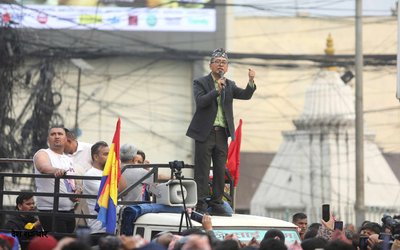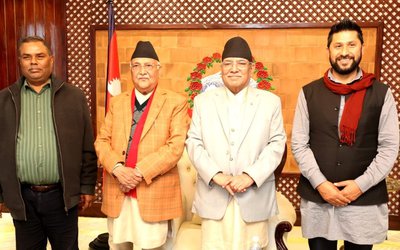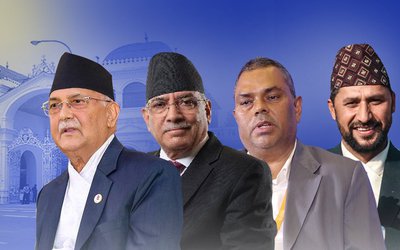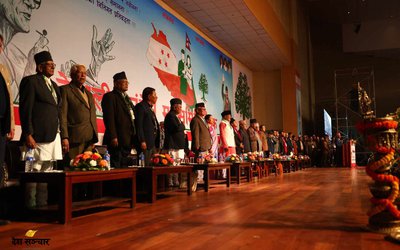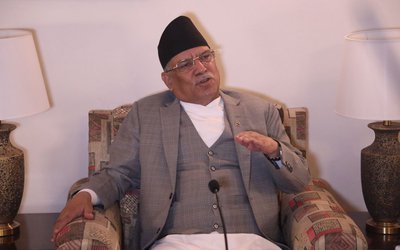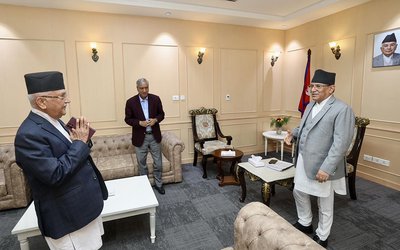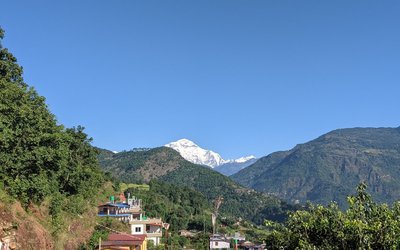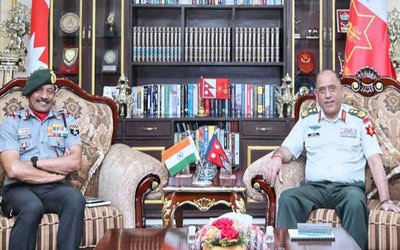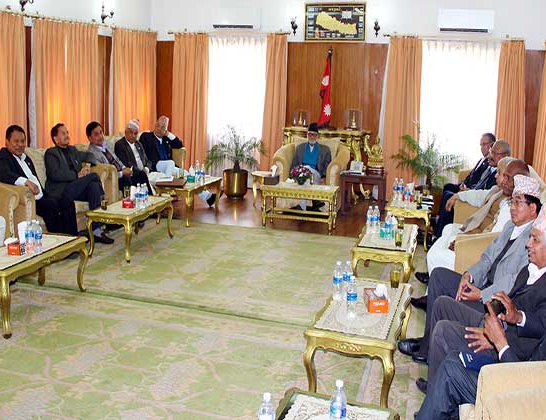
Just a week after the split of RPP-Nepal led by Padma Sunder Lawati, RPP and RPP-Nepal formed a joint committee to negotiate for unity. Similarly, UCPN-Maoist and CPN-Maoist Vaidya group have formed a high level committee for unity. Another faction is led by radical Netra Bikram Chand aka Biplab.
No one knows how Monarchist and anti-federal RPP-Nepal and republican and pro-federalist forces find unity points. Similarly, divided over the ideological differences a year ago, unity efforts of CPN-Maoist and UCPN-Maoist look strange.
“Our unity will bring a new wave in Nepali politics, particularly in the left front," said UCPN-Maoist leader Prachanda. “Unity between CPN-Maoist and UCPN-Maoist is the demand of the present time. We want to see even broader alliances of all political parties.”
With the decision of Supreme Court annulling some provision of Disappearance and Truth and Reconciliation Act, Maoists of all factions are now feeling the threat. In this context, Biplab’s statement for broader unity is meaningful. It is almost likely that the broader alliance of various political parties will be a threat to stability.
The story does not end here. After signing the unity efforts with Vaidya, Pushpa Kamal Dahal Prachanda announced a protest program, jointly with the 30-party alliance, including three days of general strike. Prachanda’s thirty parties include moderate right to extreme left and extreme rightist’s regional parties and Madheshis.
The 30- party allies have nothing in common individually. However, they are together in opposing the ruling alliance in the name of consensus for drafting the new constitution.
“We decided to launch an agitation following the ruling parties closed door for negotiations. If the ruling parties agree to go back to the consensus course, we don’t have any hesitation to sit in the negotiations,” said Mahanta Thakur, leader of TMLP.s unity of various political parties is in the progress and with announcement of agitation by 30 parties led by UCPN-Maoist, the ruling alliance of Nepali Congress, CPN-UML, RPP and CPN-ML is pushing their agenda to pass the new constitution on the basis of majority.
Although CPN-UML led alliance has many differences over running the government and fundamentals of constitution, they have for the time being no option other than to remain intact in the government. UCPN-Maoist led alliance has made several efforts to crack the present alliance. However, they are unable to make any progress in this regard.
Given the present political scenario, it seems unlikely that there will be any change in the ruling alliance.
Coming scenario
When the country’s major political parties are heading towards a confrontational course in constitution making, sharing the political power will be the only way out to bring them together. Since the country’s major political parties are taking their own stand on constitution, it is unlikely to see they will have any meeting point.
Prime minister Sushil Koirala, whose personal health is reportedly not in good shape, can play a mediatory role in bringing the opposition factions to sit across the table. However, his efforts will be futile without the support from CPN-UML.
“We cannot wait for a long period of time for UCPN-Maoist led alliance to come to CA. If they boycott it, we will promulgate the new constitution through consensus,” said Deputy Prime Minister Bam Dev Gautam. “We have already requested Prime Minister Koirala to make a move to promulgate the new constitution on Republic Day.”
Given the present political scenario when various political forces are making unity to gain strength, Nepal’s political situation is likely to deteriorate further in the days to come.
Making and breaking the opportunistic alliance is a regular phenomenon of Nepal’s politics. In the same way, a prolonged course of political instability will also continue to be a regular phenomenon in Nepal.
No matter whoever comes to power and what form of governance is in place, Nepal will continue to see political instability. There is no solution in sight.
“We cannot wait for a long period of time for UCPN-Maoist led alliance to come to CA. If they boycott it, we will promulgate the new constitution through consensus,” said Deputy Prime Minister Bam Dev Gautam. “We have already requested Prime Minister Koirala to make a move to promulgate the new constitution on Republic Day.”
Given the present political scenario when various political forces are making unity to gain strength, Nepal’s political situation is likely to deteriorate further in the days to come.
Making and breaking the opportunistic alliance is a regular phenomenon of Nepal’s politics. In the same way, a prolonged course of political instability will also continue to be a regular phenomenon in Nepal.
No matter whoever comes to power and what form of governance is in place, Nepal will continue to see political instability. There is no solution in sight.

Keshab Poudel
Poudel is the editor of New Spotlight Magazine.
- ECONOMY: Growth At 3.3
- Apr 16, 2024
- DPM’s SHRESTHA’S CHINA VISIT High Profile, Low Key
- Apr 14, 2024
- Maha Kumbha In Barahkshetra: A Sacred Festival In Sacred Koshi (Kaushiki) River
- Apr 09, 2024
- LOSS AND DAMAGE: Upper Tamakoshi A Case
- Apr 02, 2024
- Helvetas-Nepal’s InElam Promoting Herbal Oil In Sarlahi
- Mar 31, 2024

